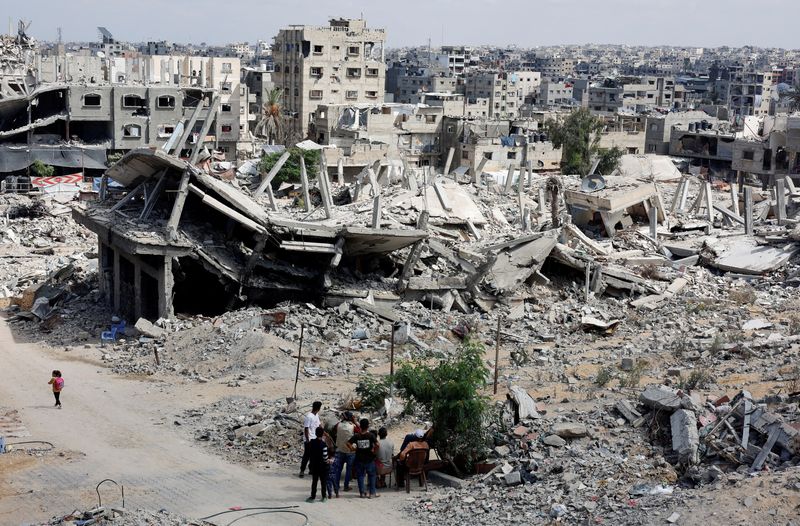By Emma Farge
GENEVA (Reuters) - Lebanon and other states called for more pressure on Israel to end its military campaigns in the Middle East at a meeting at the U.N. in Geneva on Thursday, saying that it was repeating its Gaza methods in Lebanon with catastrophic consequences.
Pakistan, as head of the Organization of Islamic Cooperation, hosted the meeting to examine the humanitarian situation a year into the Gaza war, triggered by the Hamas-led attack in which 1,200 people were killed and 250 taken hostage, according to Israeli tallies.
Addressing assembled U.N. officials and ambassadors, the Palestinian ambassador said the pain of a year of conflict in Gaza was "indescribable", while Lebanon's envoy accused Israel of using the "same sinister playbook" in his country as in Gaza.
Israel's campaign in Gaza has killed over 42,000 people, according to Gaza health authorities, and reduced much of the coastal enclave to rubble.
Since Israel intensified its military actions against the Lebanese militant group Hezbollah last month, more than 1,000 people have been killed and one million have fled their homes, Lebanon authorities say.
Israel says it targets military capabilities in Lebanon and Gaza and takes steps to mitigate the risk of harm to civilians in both places. It accuses Hezbollah and Hamas of hiding among civilians, which they deny.
Its campaign against the more heavily-armed Hezbollah aims to secure the return home of Israelis evacuated from areas near the border as a result of nearly a year of Hezbollah rocket fire into northern Israel in support of Hamas.
"As these atrocities keep unfolding we have the right to ask ourselves after one year: what is the real and ultimate goal of this?," Lebanon's ambassador to the U.N. in Geneva Salim Baddoura said.
"There is a pressing necessity for the international community to forcibly push for a ceasefire and uninhibited humanitarian relief," he added, warning of the risk of all-out war in the region.
South Africa's envoy Mxolisi Nkosi described Gaza as an "apocalyptic humanitarian catastrophe", echoing remarks by U.N. agencies who decried safety risks and difficulties delivering aid there. Turkey's ambassador Burak Akçapar called for a comprehensive arms embargo on Israel. "We cannot see the Israeli (military) objectives being clearly defined," he added.

The meeting was also attended by many Western ambassadors, including from the U.S. and Britain. Israel did not attend.
Several countries called for a two-state solution after the Israel-Hamas conflict, an outcome that Turkey and Spain said was unworkable as long as many countries refuse to recognise Palestine.